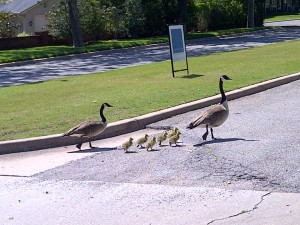Play is the work of childhood and is how children learn many of the skills, both academic and social; they need to be successful in and out of school. The push for early academics, sadly, has replaced the emphasis and importance of play. The reasoning is that without an early start on academics, children risk falling behind and might never catch up.
Parents, wanting the best for their children, are prey to such thinking but research indicates there is little evidence that early academics improve long-term achievement.
Parents who want to stimulate their children’s brain development often focus on things like early reading, flashcards and language tapes. But a growing body of research suggests that playing certain kinds of childhood games may be the best way to increase a child’s ability to do well in school.” Play is one of the most cognitively stimulating things a child can do,” says Megan McClelland, an early-childhood-development researcher.
http://www.nytimes.com/2015/05/17/opinion/sunday/let-the-kids-learn-through-play.html?mwrsm=Email&_r=1
http://www.nytimes.com/2015/05/17/opinion/sunday/let-the-kids-learn-through-play.html?mwrsm=Email&_r=1



